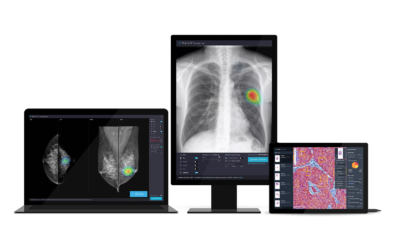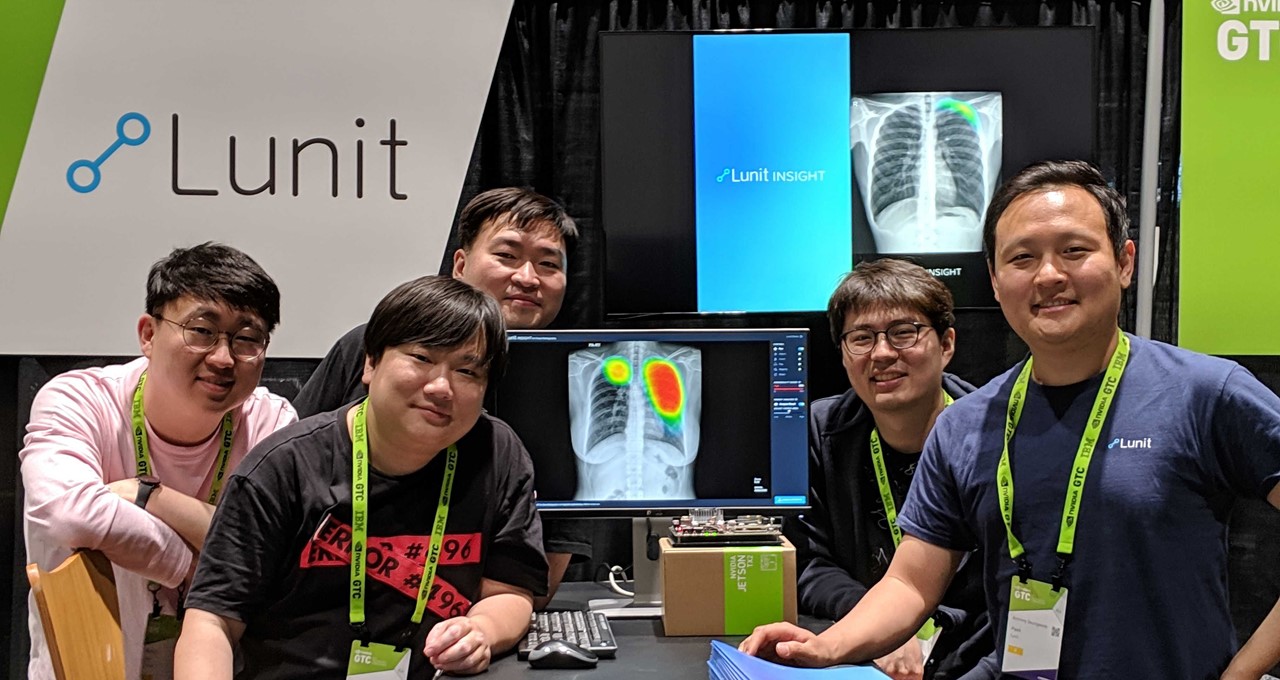Testing for COVID-19 has become more widespread, but addressing the pandemic will require quickly screening for and triaging patients who are experiencing symptoms.
Lunit, a South Korean medical imaging startup — its name is a portmanteau of “learning unit” — has created an AI-based system to detect pneumonia, often present in COVID-19 infected patients, within seconds.
The Lunit INSIGHT CXR system, which is CE marked, uses AI to quickly detect 10 different radiological findings on chest X-rays, including pneumonia and potentially cancerous lung nodules.
It overlays the results onto the X-ray image along with a probability score for the finding. The system also monitors progression of a patient’s condition, automatically tracking changes within a series of chest X-ray images taken over time.
Lunit has recently partnered with GE Healthcare, which launched its Thoracic Care Suite using Lunit INSIGHT CXR’s AI algorithms to flag abnormalities on chest X-rays for radiologists’ review. It’s one of the first collaborations to bring AI from a medical startup to an existing X-ray equipment manufacturer, making AI-based solutions commercially available.
For integration of its algorithms with GE Healthcare and other partners’ products, Lunit’s hardware is powered by NVIDIA Quadro P1000 GPUs, and its AI model is optimized on the NVIDIA Jetson TX2i module. For cloud-based deployment, the company uses NVIDIA drivers and GPUs.
Lunit is a premier member of NVIDIA Inception, a program that helps startups with go-to-market support, expertise and technology. Brandon Suh, CEO of Lunit, said being an Inception partner “has helped position the company as a leader in state-of-the-art technology for social impact.”
AI Opens New Doors in Medicine
The beauty of AI, according to Suh, is its ability to process vast amounts of data and discover patterns — augmenting human ability, in terms of time and energy.
The founders of Lunit, he said, started with nothing but a “crazy obsession with technology” and a vision to use AI to “open a new door for medical practice with increased survival rates and more affordable costs.”

Initially, Lunit’s products were focused on detecting potentially cancerous nodules in a patient’s lungs or breasts, as well as analyzing pathology tissue slides. However, the COVID-19 outbreak provided an opportunity for the company to upgrade the algorithms being used to help alleviate the burdens of healthcare professionals on the frontlines of the pandemic.
“The definitive diagnosis for COVID-19 involves a polymerase chain reaction test to detect antigens, but the results take 1-2 days to be delivered,” said Suh. “In the meantime, the doctors are left without any clinical evidence that can help them make a decision on triaging the patients.”
With its newly refined algorithm, Lunit INSIGHT CXR can now single out pneumonia and identify it in a patient within seconds, helping doctors make immediate, actionable decisions for those in more urgent need of care.
The Lunit INSIGHT product line, which provides AI analysis for chest X-rays and mammograms, has been commercially deployed and tested in more than 130 sites in countries such as Brazil, France, Indonesia, Italy, Mexico, South Korea and Thailand.
“We feel fortunate to be able to play a part in the battle against COVID-19 with what we do best: developing medical AI solutions,” said Suh. “Though AI’s considered cutting-edge technology today, it could be a norm tomorrow, and we’d like everyone to benefit from a more accurate and efficient way of medical diagnosis and treatment.”
The team at Lunit is at work developing algorithms to use with 3D imaging, in addition to their current 2D ones. They’re also looking to create software that analyzes a tumor’s microenvironment to predict whether a patient would respond to immunotherapy.
Learn more about Lunit at NVIDIA’s healthcare AI startups solutions webinar on August 13. Register here.
Stay up to date with the latest healthcare news from NVIDIA.
